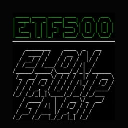 |
|
 |
|
 |
|
 |
|
 |
|
 |
|
 |
|
 |
|
 |
|
 |
|
 |
|
 |
|
 |
|
 |
|
 |
|
Cryptocurrency News Articles
Cross-Chain Compatibility in DeFi: Why It's Important and How It Will Shape the Future
Nov 21, 2024 at 11:55 am
Cross-chain compatibility refers to the ability of different blockchain networks to interact with each other seamlessly. This means that assets, data, and smart contracts can move freely between chains, creating a more unified and efficient DeFi ecosystem.

DeFi’s growth has been hindered by the isolated nature of individual blockchain networks, which prevents users on one chain from easily interacting with others. Currently, users must swap tokens through exchanges (CEXs & DEXs) to move assets between blockchains. This process is cumbersome, incurs high fees, and introduces risks associated with centralization.
Cross-chain compatibility offers a solution by enabling users to move assets between blockchains without relying on CEXs. This streamlines the process, reduces fees, and maintains the decentralized nature of DeFi. As a result, users can experience smoother and more efficient asset transfers, enabling them to react swiftly to market opportunities and changes, thus enhancing their ability to manage their portfolios effectively.
Moreover, cross-chain compatibility fosters a more user-centric DeFi ecosystem. By eliminating the need for CEXs in cross-chain transactions, this technology reduces the potential risks associated with centralized entities, such as hacks, fraud, and mismanagement. Instead, cross-chain protocols utilize decentralized mechanisms to transfer assets. This shift not only protects individual users but also builds greater trust in the DeFi space, encouraging wider adoption.
In the grand scheme of things, cross-chain compatibility is a crucial step toward a more interconnected and efficient DeFi ecosystem. However, it also comes with challenges that need to be addressed.
Security Risks
Cross-chain compatibility introduces new security challenges. When different blockchains are connected, they might create vulnerabilities where their security systems overlap. For example, a weakness in one blockchain could potentially affect others it’s linked to. Ensuring security across these interconnected systems requires advanced solutions to prevent attacks and protect the entire network.
Technical Complexities
Building cross-chain solutions is technically complex. It involves developing systems that can work with various blockchains, each having its own rules and data formats. This complexity can lead to technical problems, delays, and higher development costs as developers try to make these systems work together smoothly.
Scalability Issues
As more blockchains are connected, maintaining efficient and scalable cross-chain communication becomes harder. With increasing transactions and interconnected networks, managing performance without delays or bottlenecks can be challenging. This can affect the speed and efficiency of DeFi applications.
Lack of Standardization
There is no universal standard for cross-chain compatibility, and this would lead to fragmentation and inefficiencies. Different projects may use different methods for cross-chain communication, causing inconsistencies and problems with interoperability. To solve this, it’s essential to create and adopt common standards for seamless integration between blockchains.
Regulatory and Compliance Challenges
Cross-chain compatibility also faces regulatory hurdles. Ensuring that cross-chain transactions adhere to financial regulations in various regions can be complicated. This can lead to legal uncertainties and difficulties for DeFi projects trying to operate across different regulatory environments.
Disclaimer:info@kdj.com
The information provided is not trading advice. kdj.com does not assume any responsibility for any investments made based on the information provided in this article. Cryptocurrencies are highly volatile and it is highly recommended that you invest with caution after thorough research!
If you believe that the content used on this website infringes your copyright, please contact us immediately (info@kdj.com) and we will delete it promptly.
-

-

-

-

-

-

-

-

-

- Dogecoin’s Dynamic Journey: Discovering Its New Horizons in Digital Finance and AI
- Jan 30, 2025 at 12:45 pm
- Dogecoin has evolved significantly beyond its origins as a meme coin. In 2023, it is not only recognized for its low transaction fees and strong community support but also for pioneering efforts in integrating blockchain technology with Artificial Intelligence (AI).




















![BONK COIN PRICE PREDICTION [ A 30% AVERAGE PUMP !!! ] BONK COIN PRICE PREDICTION [ A 30% AVERAGE PUMP !!! ]](/uploads/2025/01/30/cryptocurrencies-news/videos/bonk-coin-price-prediction-average-pump/image-1.jpg)







































